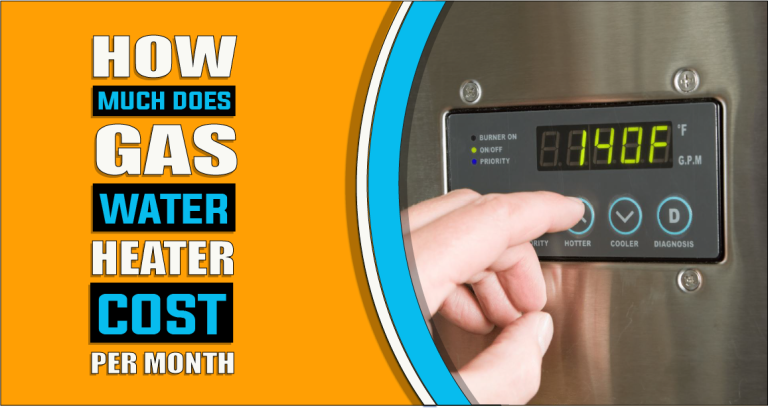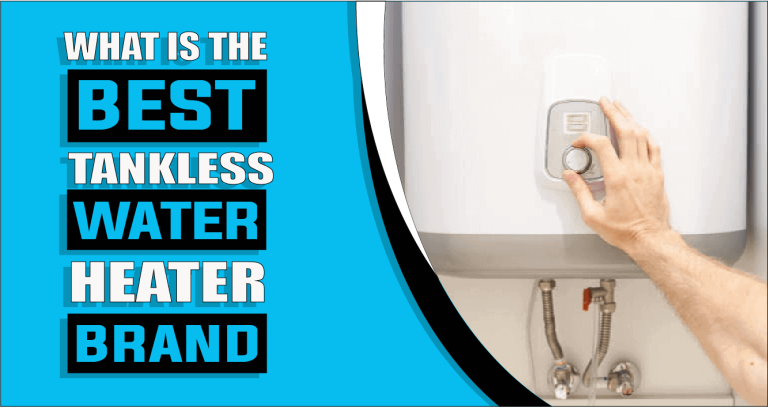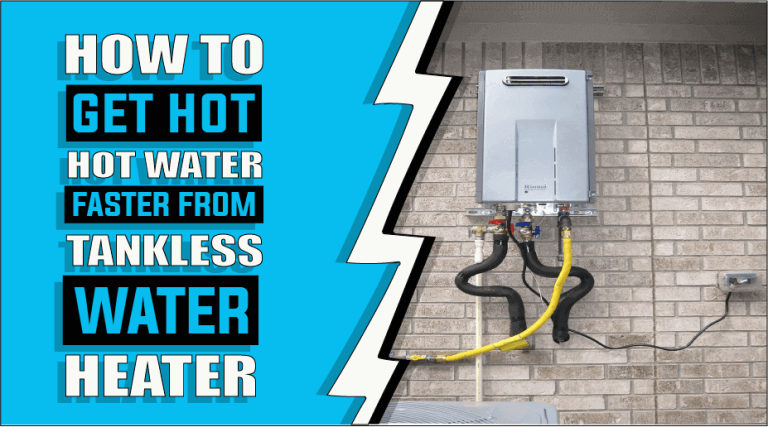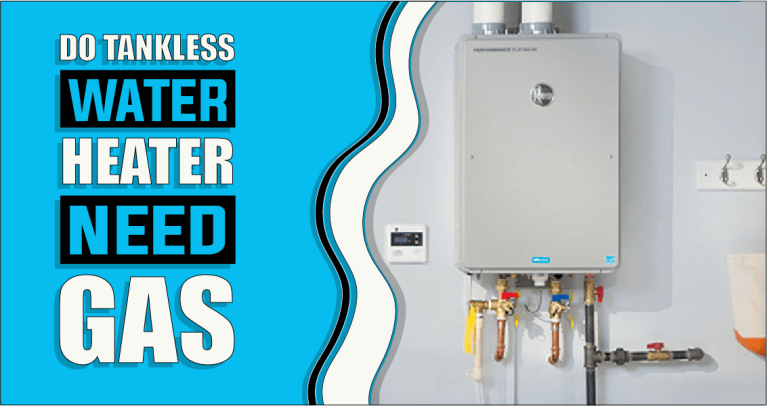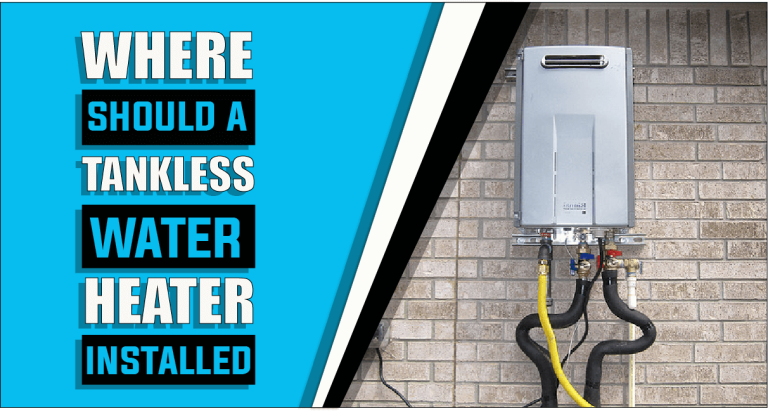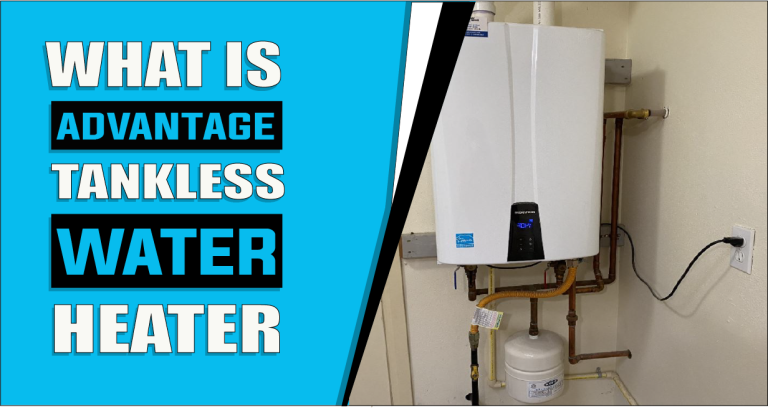Can Hot Water Heaters Explode – The Truth Reveals
Heaters can be a fantastic addition to any household, providing welcoming warmth and comfort amid cold winter nights. But are you concerned about the safety of your water heater? It’s a reasonable worry. After all, water heaters can contain large amounts of pressure and heat, making them potential hazards in a home. But can hot water heaters explode? While it’s rare that a water heater will explode, this potential hazard is something to be aware of. In this post, we’ll explore some common causes behind water heater explosions and look at how homeowners can help prevent them from happening in their own homes.
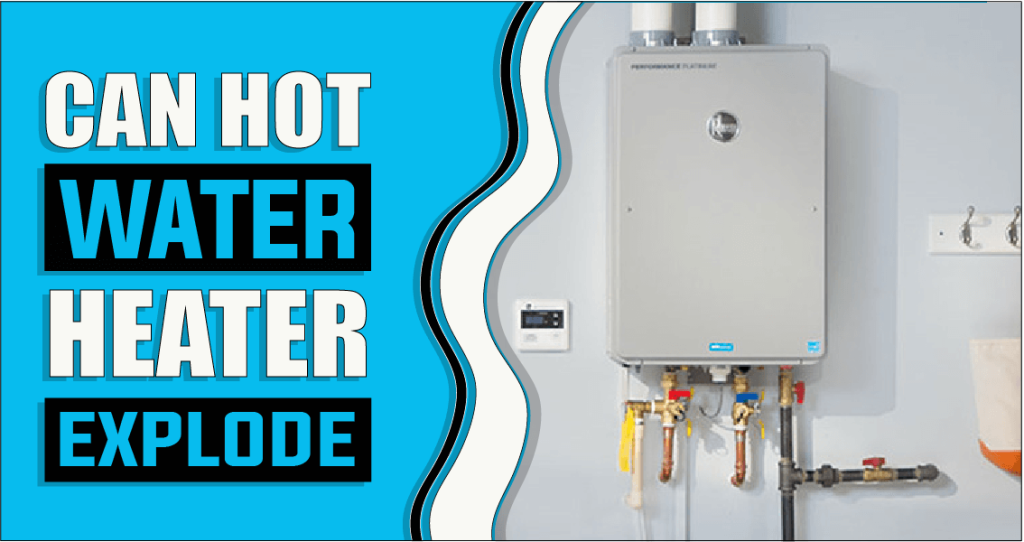
Let’s explore can hot water heaters explode.
Yes, water heaters can explode if they are not properly maintained or installed. The most common cause of water heater explosions is severe overheating. This can be caused by a malfunctioning thermostat or failure to adjust the temperature setting on the thermostat. It’s also possible for a water heater to become corroded from hard water or sediment buildup inside the tank, leading to poor insulation and excessive pressure. In addition, any type of damage to the tank itself can lead to an explosion.
So it’s important to watch out for warning signs that may indicate your water heater is in danger of exploding. These include Unusual noises coming from the heater, Abnormally high levels of steam coming from vents near the heater, Leaking water from the tank, and Visible damage to the outside of the tank such as cracks, rust, or corrosion. If you notice any of these warning signs, it’s important to take action as soon as possible before an explosion occurs. Turn off the heater and contact a professional for repair or replacement. It’s also a good idea to inspect your water heater regularly to spot any potential problems before they become major issues.
By understanding what can cause water heaters to explode and taking the necessary steps to keep them running safely, you can help prevent serious injury or property damage due to a water heater explosion.
The Dangers of a Hot Water Heater Explosion
A water heater explosion can be a catastrophic event, with the potential to cause significant property damage and injury. The explosions are usually caused by a buildup of pressure or combustible gas inside the tank. When an explosion occurs, it can throw pieces of metal and scalding-hot water in all directions. The most common cause of a water heater explosion is listed below.
1. High Temperature and Pressure:
Water heaters are designed to operate at temperatures of around 120°F (49°C) and pressures of up to 30 psi (2.07 bar). If the temperature or pressure levels inside the tank exceed these limits, it can create a hazardous situation that will eventually lead to an explosion.
2. Thermal Expansion:
If the pressure relief valve on a water heater fails, or if there is no pressure relief valve installed at all, the tank can become over-pressurized as the hot water expands inside it. This can cause a dangerous situation that may eventually lead to an explosion.
3. Corrosion of Internal Components:
Over time, corrosion can cause the internal components of a water heater to weaken and fail. If the heating elements or other parts of the tank become corroded enough, they can separate from one another, allowing combustible gases to build up inside the tank which can eventually lead to an explosion.
4. Flammable Vapor Ignition:
If flammable vapors such as those from gasoline, kerosene, or paint thinners are present near a water heater, they can get drawn into the tank and ignite. This can cause an explosion if there is enough vapor inside the tank when it ignites.
5. Combustible Dust:
If combustible dust such as flour, grain, or sawdust builds up around the water heater, it can create a potentially explosive situation. If an ignition source is present, the dust can ignite and cause an explosion.
6. Poor Maintenance:
If a water heater is not properly maintained, it can create a dangerous situation. Corrosion, loose connections, and clogged vents can all lead to an increase in temperature and pressure inside the tank which could eventually cause an explosion.
7. Defective Parts:
If a water heater is equipped with defective or poorly manufactured parts, it can create a hazardous situation. These parts may fail prematurely, causing the temperature and pressure inside the tank to increase beyond safe levels and leading to an explosion.
Preventing a water heater explosion requires proper maintenance of the unit, ensuring that all safety features are working properly, and avoiding the presence of flammable vapors or combustible dust around the tank. If you suspect that your water heater is unsafe, it’s best to have it inspected by a professional. Taking these steps can help ensure that your water heater stays safe and secure.
How to Prevent your Hot Water Heater from Exploding
Water heaters can be dangerous if they are not properly maintained and managed. The most common danger with a water heater is that it can explode, which can be incredibly damaging and even deadly if not handled correctly. To prevent your water heater from exploding, several safety measures should be taken.
1: Checking Temperature and Pressure Relief Valve Frequently
First, it is essential to check the temperature of your water heater regularly to ensure that it is not set too high. Water heaters should never exceed 130°F in temperature, as this can cause them to become over-pressurized and potentially explode. It is also important to periodically inspect the pressure relief valve on your unit to make sure it is functioning properly and able to release any excess pressure that may build up inside the tank. Other safety tips include inspecting the anode rod for corrosion or calcium buildup every five years and draining sediment from the bottom of the tank every six months.
2: Get Maintenance at least once a Year
Another way of preventing an explosion from happening with your water heater is by having routine maintenance done by a professional at least once a year. A professional will be able to closely inspect all aspects of the unit for signs of wear or damage, as well as ensure that all safety components such as the pressure relief valve are functioning correctly. During maintenance, they may also flush out any sediment or calcium deposits that have built up within the system. Additionally, having an expansion tank installed on your water heater system can help regulate pressure levels so that there isn’t too much being built up inside the tank at any time.
3: Inspecting Popping Noises and Leaks
Finally, you should always act quickly when you notice anything strange related to your water heater such as odd noises coming from it, leaking or discolored water coming out of its pipes, or unusually frequent cycling on/off times. These are all indications that something could potentially be wrong with your system and you should contact a professional right away before an explosion occurs.
By following these steps, you can greatly reduce your chances of ever experiencing an exploding water heater in your home and keep yourself and those who live in your house safe from harm!
What to Do if Hot Water Heater Explodes
When a water heater explodes, it’s important to know what to do to minimize risks and ensure safety both in terms of people’s health and in terms of property damage. Turning off power sources immediately and contacting emergency personnel including fire departments and plumbers as necessary are all essential steps when dealing with a water heater explosion.
Evacuating everyone from the area immediately and making sure that everyone stays clear of any debris or potential hazards coming from the explosion is also an important step. Because any debris coming out of a water heater explosion can cause serious injury if it strikes someone who was nearby. Make sure that all pets and children are safely away from any possible flying objects. Additionally inspecting gas lines, checking shut-off valves, and clearing combustible materials around the site must all be undertaken when attempting repairs or replacements after an explosive incident related to a water heater has taken place.
In some cases where serious injuries occurred due to a hot water tank exploding, filing claims against responsible parties who manufactured faulty products can help cover medical expenses. It’s always best to consult with experts before making decisions about claiming damages however, it’s important for consumers to recognize their rights under applicable laws.
Finally, regardless of whatever cause is found for an exploding hot water tank, it’s important for all who own these devices to understand their purpose and proper functioning. Regular maintenance procedures like changing pressure relief valves every five years are essential for preventing future issues. As well as basic safety requirements such as keeping flammable materials far away from these units will help prevent potential explosions in the future.
Hot Water Heater Explosion Statistics
Water heater explosions are surprisingly common and can cause severe personal injury, property damage, and even death. According to the National Fire Protection Association (NFPA), from 2008-2018 an estimated average of 5,620 residential structure fires each year were caused by hot water tanks or pipe explosions. These fires resulted in an estimated 16 civilian deaths, 152 civilian injuries, and $72 million in direct property damage per year.
The NFPA goes on to report that most water heater explosions involve natural gas models with an average age between 10-20 years old. Older models may be more prone to exploding because they use old technologies that are not up-to-date with newer safety standards. If a homeowner has a model older than 10 years they should consider replacing it with a newer model that meets current safety requirements from either their local building code or energy efficiency standards if available.
Most often these incidents occur because of improper installation or maintenance of the water tank units—often due to a lack of adequate safety precautions or knowledge about proper operation. Homeowners should regularly inspect their water heaters for signs of wear and tear like rust, gas leaks, corrosion, loose electrical wiring, or other signs of damage that could lead to an explosion. They should also have their systems properly serviced at least once a year to help ensure it is running as safely as possible. So homeowners need to take all necessary precautions when installing new systems and maintain them regularly according to the manufacturer’s recommendations.
Frequently Asked Questions
There are some possible triggers for an explosion in a water heater, including faulty wiring, improper installation, corrosion or wear and tear, gas leaks, and high-pressure buildup. Homeowners should have their water heaters inspected regularly to help prevent these types of issues.
If a water heater catches fire, the first step is to shut off the gas and electricity supply to the unit. It may also be necessary to evacuate everyone in the house due to potential gas leaks or other safety concerns. Contact your local fire department for assistance if needed.
According to the National Fire Protection Association, an estimated average of 5,620 residential structure fires each year were caused by hot water tanks or pipe explosions from 2008-2018. Regular maintenance and inspections can help prevent these types of incidents.
The lifespan of a water heater typically ranges from 8-12 years depending on the type and regular maintenance. Older models may be more prone to exploding due to outdated safety standards, so homeowners should consider replacing them with newer models that meet current building codes or energy efficiency standards if available.
Conclusion
So in conclusion of this article, can hot water heaters explode? The answer is yes. If the water heater isn’t cared for and maintained properly. Explosions can occur in water heaters due to a variety of factors, including improper installation or maintenance, gas leaks, and high-pressure buildup. But don’t worry – we’re here to help you prevent that from happening and to give you advice on what to do if it does happen. You should inspect hot water systems regularly for signs of wear and tear and have them serviced by a professional at least once a year. Taking preventative safety measures can help protect your home and family from potential water heater explosions.
Ella John is passionate about helping her readers make the best choice when purchasing a heater. She understands that selecting a heater can be difficult and strives to provide information to help make the decision easier. Ella’s website, Heatersinfo.com, provides valuable insight into heating trends and types of heaters and tips on how to care for them. She also advises selecting the right heater based on individual needs and preferences. Her expertise in electronics makes her an excellent source of knowledge, and she is confident that anyone who visits her website will find the perfect heater information for their needs. Ella’s dedication to helping others make educated decisions about buying the right heater is unparalleled, and she hopes to continue offering her expertise for many years. With Ella’s help, finding the perfect heater can be a breeze!

